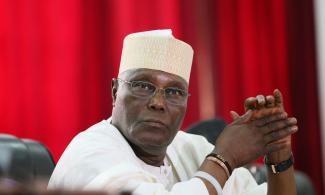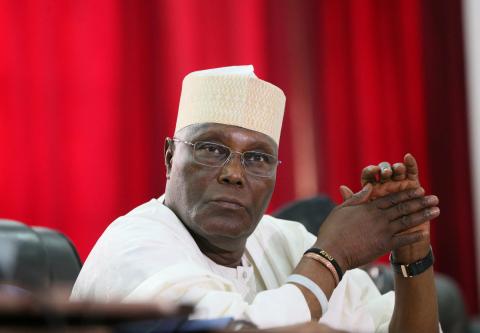
Also included in the suit as the fourth defendant is the Attorney-General of the Federation (AGF).
A constitutional lawyer, Mr. Johnmary Jideobi, has filed a suit before the Federal High Court sitting in Abuja, seeking clarification on the citizenship of the presidential candidate of the Peoples Democratic Party (PDP), Atiku Abubakar, and his eligibility to contest the 2023 presidential election.
Jideobi in the suit filed on Tuesday, with file number: FHC/ABJ/CS/751/2022, argued that Atiku, a former vice president of Nigeria, is not constitutionally qualified to participate in the presidential contest in 2023.

The plaintiff wants to determine two legal questions, after which he sought seven principal reliefs against Atiku, PDP and the Independent National Electoral Commission (INEC), who were cited as 1st, 2nd and 3rd defendants in the matter.
Also included in the suit as the fourth defendant is the Attorney-General of the Federation (AGF).
Jideobi asked the court to determine first, “Whether by the combined provisions of sections 1(1) & (2), 25 and 131(a) of the Constitution of the Federal Republic of Nigeria, 1999 (as amended), only a Nigeria citizen by birth can contest for the office of the President of the Federal Republic of Nigeria?”
The court should also determine “Whether by the combined interpretation of sections 1(1) & (2), 25(1) & (2) and 131(a) of the Constitution of the Federal Republic of Nigeria, 1999 (as amended), and giving the circumstances surrounding the birth of the 1st Defendant, he can be cleared by the 2nd and 3rd Defendants to contest for the office of the President of the Federal Republic of Nigeria?”
A group known as the Egalitarian Mission for Africa (EMA), had earlier approached the Federal High Court, Abuja, with a suit marked: FHC/ABJ/CS/177/2019, against Atiku, PDP, INEC and the Attorney General of the Federation.
The group had challenged Atiku’s eligibility to contest for presidency on the grounds that he is not a Nigerian citizen by birth.
EMA asked the court to hold, among others, that considering the provisions of Sections 25(1) &(2) and 131(a) of the constitution and the circumstances surrounding the former vice president’s birth, he cannot contest the top office.
All the suits against Atiku argued that when Atiku was born, the part of Adamawa State where he hails from was part of the Trust Territories of Northern Cameroon and not Nigeria.
But Justice Inyang Ekwo dismissed the suit on the grounds that the plaintiff lacked the locus standi (legal right) to file such a suit against the defendants.
Also, the leader of the outlawed Indigenous People of Biafra (IPOB), Mazi Nnamdi Kanu, had in a “special broadcast” on Radio Biafra in 2019 said that Atiku is from the former Sardauna province of Cameroon which later joined Nigeria through a referendum.
“Time and again, boycotts, historically, have proven to be a necessary tool of both active and passive resistance.
“I need not mention other nations, which in the recent past, had applied boycott as a means to expressing and achieving their demands for freedom.
“Nigeria’s experience with the election boycott in 1964 tells the same story but they have banned history and thus won’t teach you that in schools. They won’t tell you that Chief Obafemi Awolowo used boycott of elections to achieve his goal in the west.
“They also won’t tell you that it’s a referendum (called a plebiscite in this case) that brought about the creation of an autonomous mid-west region of Nigeria in 1963, and before then – the unification of the former Sardauna province of Cameroon (where Atiku came from) with Nigeria, and part of southeastern Nigeria joined Cameroon.
“All through a referendum, and the heavens did not fall. It was that referendum in the north-east that enabled Atiku Abubakar to become a Nigerian, otherwise, he would be a Cameroonian today.
“Why is it that the same process that made it possible for Atiku to become a Nigerian instead of a Cameroonian cannot be extended to me as a Biafran?” The Cable had reported.